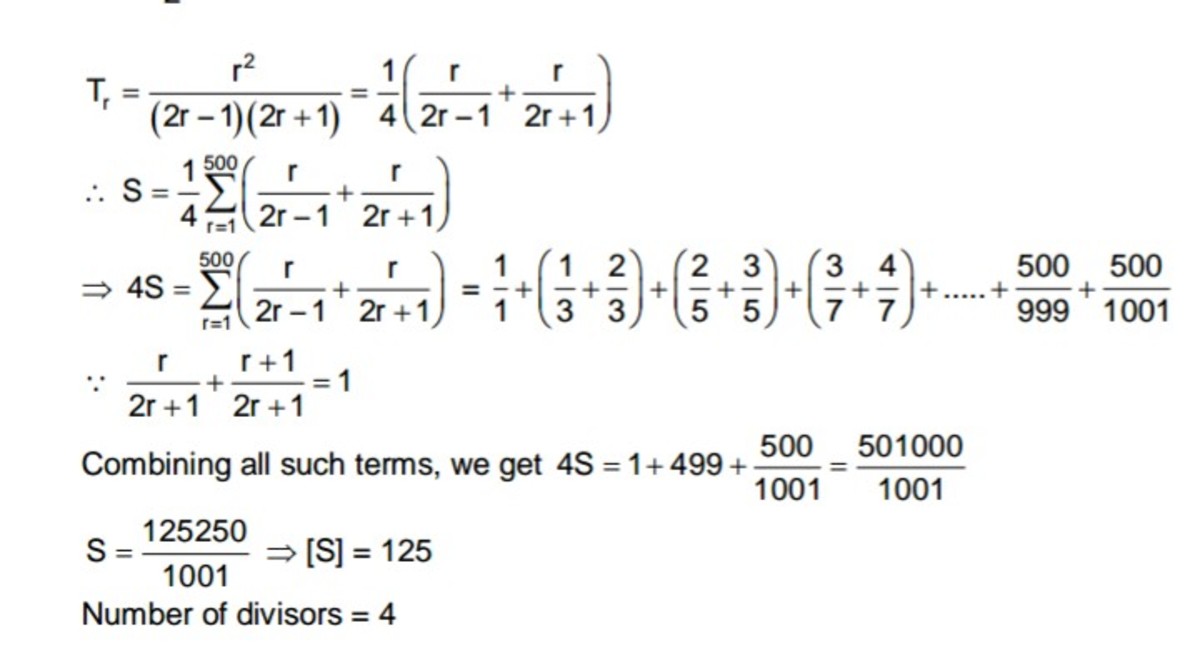JEE maths#18
S = 1 × 3 1 2 + 3 × 5 2 2 + 5 × 7 3 2 + ⋯ + 9 9 9 × 1 0 0 1 5 0 0 2
For S as defined above, find the number of divisors of ⌊ S ⌋ .
Notation:
⌊
⋅
⌋
denotes the
floor function
.
For more JEE problems try my set
The answer is 4.
This section requires Javascript.
You are seeing this because something didn't load right. We suggest you, (a) try
refreshing the page, (b) enabling javascript if it is disabled on your browser and,
finally, (c)
loading the
non-javascript version of this page
. We're sorry about the hassle.
2 solutions
@Chew-Seong Cheong- Did the same ,also i think that, if S = k = 1 ∑ n ( 2 k − 1 ) ( 2 k + 1 ) k 2 then ⌊ S ⌋ will always be equal to ⌊ 4 n ⌋ - :)
Log in to reply
base from sir @Chew-Seong Cheong , your conjecture is correct. :D ~
Did the same way .
Log in to reply
But @Chew-Seong Cheong Sir's approach is better and more intuitive, isn't it ?

S = 1 × 3 1 2 + 3 × 5 2 2 + 5 × 7 3 2 + ⋯ + 9 9 9 × 1 0 0 1 5 0 0 2 = n = 1 ∑ 5 0 0 ( 2 n − 1 ) ( 2 n + 1 ) n 2 = n = 1 ∑ 5 0 0 4 n 2 − 1 n 2 = 4 1 n = 1 ∑ 5 0 0 4 n 2 − 1 4 n 2 − 1 + 1 = 4 1 n = 1 ∑ 5 0 0 ( 1 + 4 n 2 − 1 1 ) = 4 5 0 0 + 4 1 n = 1 ∑ 5 0 0 ( 2 n − 1 ) ( 2 n + 1 ) 1 = 1 2 5 + 4 1 n = 1 ∑ 5 0 0 ( 2 n − 1 ) ( 2 n + 1 ) 1 = 1 2 5 + 8 1 n = 1 ∑ 5 0 0 ( 2 n − 1 1 − 2 n + 1 1 ) = 1 2 5 + 8 1 ( 1 1 − 1 0 0 1 1 )
⟹ ⌊ S ⌋ = 1 2 5 = 5 3 . Therefore, the number of divisors of ⌊ S ⌋ is 3 + 1 = 4 .